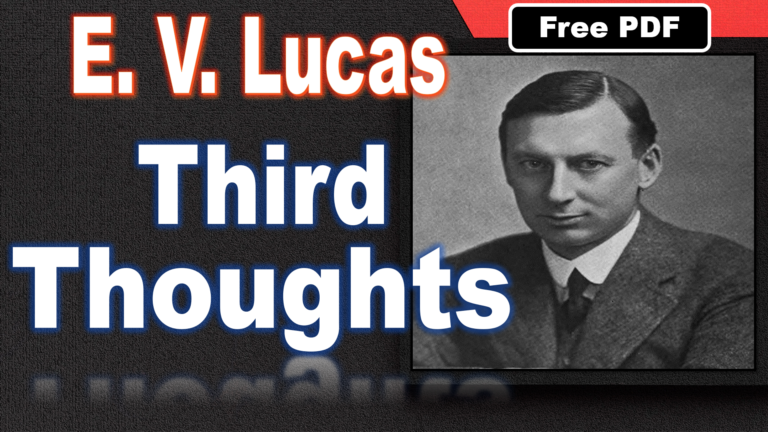Essay Type Questions
Write the critical appreciation of the Essay “Getting Up on Cold Mornings” by Leigh Hunt.
“Getting Up On Cold Mornings” by Leigh Hunt is a delightful exploration of a universal human experience. The essay is a masterful blend of humor, introspection, and social commentary, making it a standout piece in Leigh Hunt’s body of work. This critical appreciation will delve into the various aspects of the essay that contribute to its charm and effectiveness.
1. Humor: One of the most striking features of the essay is its humor. Hunt’s playful and witty language immediately engages the reader and lightens the tone of the essay. He uses irony, playful language, and humorous scenarios to highlight the struggle of getting up on a cold morning. For instance, he humorously suggests that those who argue it’s easy to get up on a cold morning should experience the comfort of his warm bed. The humor not only entertains but also makes the essay’s arguments more relatable and persuasive.
2. Introspection: The essay is also notable for its introspection. Hunt delves into the mental debate that takes place when deciding whether to get up on a cold morning. He compares this to a schoolboy facing a punishment; once it’s over, it’s over. But the decision to get up isn’t so straightforward. Hunt describes the act of contemplating whether to get up or stay in bed as a “pleasant exercise” and not a waste of time. This introspection adds depth to the essay and invites the reader to reflect on their own experiences and behaviors.
3. Social Commentary: Hunt’s essay also serves as a social commentary. He critiques those who assert that getting up on a cold morning is simply a matter of willpower. He suggests that these people lack understanding of the comfort of a warm bed on a cold morning. He presents a series of observations and arguments, all aimed at justifying the desire to stay in bed. These arguments challenge societal expectations of productivity and highlight the importance of individual comfort and well-being.
4. Persuasive Tactics: Hunt demonstrates his skill as a persuasive writer in the essay. He proposes a strategy for persuading someone to get up, which involves acknowledging the person’s arguments, appealing to their sense of duty and consideration for others, and expressing concern for their health. He also suggests additional tactics tailored to the individual’s interests and concerns. These persuasive tactics make the essay not only entertaining but also thought-provoking.
5. Relatability: Perhaps the most significant aspect of the essay is its relatability. Hunt captures a universal human experience – the struggle to leave the comfort of a warm bed on a cold morning. His observations and arguments resonate with anyone who has ever faced this struggle. This relatability makes the essay a timeless piece that continues to engage readers.
6. Conclusion: In conclusion, “Getting Up On Cold Mornings” by Leigh Hunt is a masterful essay that blends humor, introspection, and social commentary to explore a universal human experience. Its charm lies in its relatability, its playful and witty language, and its insightful observations and arguments. It is a testament to Hunt’s skill as a writer and his keen understanding of human nature.
Write long note on Joseph Addison as Essayist.
Leigh Hunt, born as James Henry Leigh Hunt, was an influential figure in the Romantic movement in England. He was a critic, essayist, and poet, known for his unique style that combined wit, anecdote, and a conversational tone. His essays, in particular, have been celebrated for their charm, ease, and geniality, and they played a significant role in shaping the genre in the 19th century.
One of Hunt’s most notable essays is “Getting Up On Cold Mornings,” which serves as an excellent example of his distinctive approach to essay writing. In this essay, Hunt explores a universal human experience—the struggle of leaving the comfort of a warm bed on a cold morning. He approaches this seemingly mundane topic with humor, introspection, and a keen eye for human nature, turning it into a delightful exploration of comfort, duty, and the human tendency to rationalize behavior.
As an essayist, Hunt excelled in capturing the nuances of everyday life and presenting them in an engaging and relatable manner. His essays often revolve around ordinary experiences and observations, but he has a knack for making them extraordinary through his insightful commentary and engaging storytelling. In “Getting Up On Cold Mornings,” for instance, he transforms the simple act of getting out of bed into a complex mental debate, filled with humorous arguments and counterarguments.
Hunt’s style as an essayist is characterized by its conversational tone. He writes as if he’s having a chat with the reader, creating a sense of intimacy and immediacy. This style is evident in “Getting Up On Cold Mornings,” where he directly addresses the reader, includes dialogues, and uses a first-person narrative. This conversational style makes his essays accessible and enjoyable to read, drawing the reader into the discussion.
Another notable aspect of Hunt’s essays is his use of humor. He often uses irony, playful language, and humorous scenarios to highlight the absurdities of life and human behavior. In “Getting Up On Cold Mornings,” for instance, he humorously suggests that those who argue it’s easy to get up on a cold morning should experience the comfort of his warm bed. His humor not only entertains but also serves to underscore his points, making his arguments more memorable.
Hunt’s essays also reflect his keen understanding of human nature. He has a sharp eye for the quirks and idiosyncrasies of human behavior, and he presents them in a way that is both insightful and empathetic. In “Getting Up On Cold Mornings,” he delves into the mental struggle that takes place when one is deciding whether to get up, highlighting the human tendency to rationalize comfort-seeking behavior. His insightful portrayal of this struggle shows his deep understanding of the complexities of human nature.
In addition to his humor and insight, Hunt’s essays are also notable for their social commentary. He often uses his essays to critique societal norms and behaviors, and to advocate for change. In “Getting Up On Cold Mornings,” for instance, he critiques those who assert that getting up on a cold morning is simply a matter of willpower, suggesting that they lack understanding of the comfort of a warm bed on a cold morning. His essays often reflect his progressive views and his commitment to social and political reform.
Overall, Leigh Hunt’s contribution to the genre of the essay is significant. His unique style, combining humor, insight, conversational tone, and social commentary, has had a lasting impact on the genre. His essays, such as “Getting Up On Cold Mornings,” continue to be celebrated for their charm, wit, and geniality, and they offer valuable insights into the human condition. As an essayist, Hunt has left an indelible mark on English literature, and his works continue to be read and enjoyed for their timeless appeal.
Long note on theme of the essay “Getting Up on Cold Mornings” by Leigh Hunt.
The essay “Getting Up On Cold Mornings” by Leigh Hunt is a delightful exploration of a universal human experience. The central theme of the essay is the struggle between comfort and duty, particularly the difficulty of leaving the warmth of one’s bed on a cold morning. This theme is explored through a series of humorous and relatable observations and arguments, highlighting the human tendency to rationalize comfort-seeking behavior and the importance of considering others and fulfilling one’s responsibilities.
The essay begins with a playful comparison between the discomforts of cold weather and the annoyances caused by insects, as described by an Italian author. This serves as an introduction to the main theme of the essay, setting the stage for the discussion of the struggle of getting up on a cold morning. Hunt uses this comparison to highlight the discomfort of cold weather, suggesting that just as insects are seen as a nuisance, so too is the cold.
As the essay progresses, Hunt delves into the mental debate that takes place when deciding whether to get up on a cold morning. He compares this to a schoolboy facing a punishment; once it’s over, it’s over. But the decision to get up isn’t so straightforward. Hunt describes the act of contemplating whether to get up or stay in bed as a “pleasant exercise” and not a waste of time. He defends this by saying that while physically in bed (“lying”), one is mentally active, engaging in a rational debate with oneself. This argument highlights the theme of the struggle between comfort and duty, suggesting that the decision to get up is not just about physical comfort, but also involves a mental struggle.
Hunt then critiques those who assert that getting up on a cold morning is simply a matter of willpower. He suggests that these people lack understanding of the comfort of a warm bed on a cold morning. He presents a series of observations and arguments, all aimed at justifying the desire to stay in bed. These arguments further explore the theme of the struggle between comfort and duty, suggesting that the decision to get up is not just about overcoming physical discomfort, but also involves overcoming mental resistance.
In the latter part of the essay, Hunt proposes a strategy for persuading someone to get up. This involves acknowledging the person’s arguments, appealing to their sense of duty and consideration for others, and expressing concern for their health. He also suggests additional tactics tailored to the individual’s interests and concerns, such as warning a lover about weight gain or reminding a father about setting a good example for his children. These suggestions highlight the theme of the struggle between comfort and duty, suggesting that getting up on a cold morning is not just about personal comfort, but also about considering the needs and comfort of others.
In the concluding dialogue between the “Reader” and the “Indicator” (representing Hunt), the theme of the struggle between comfort and duty is further explored. The “Reader” questions the “Indicator” about his own habits regarding getting up on cold mornings, and the “Indicator” responds with flattery, suggesting that the prospect of seeing the Reader’s face would be enough to get him out of bed early. This exchange adds a personal touch to the essay, further engaging the reader and adding depth to the discussion on the struggle of getting up on cold mornings.
Overall, the essay “Getting Up On Cold Mornings” by Leigh Hunt is a detailed, humorous, and relatable exploration of the struggle to leave the comfort of a warm bed on a cold morning. The central theme of the struggle between comfort and duty is explored through a series of humorous and relatable observations and arguments, highlighting the human tendency to rationalize comfort-seeking behavior and the importance of considering others and fulfilling one’s responsibilities. The essay serves as a reminder of the daily struggles we all face and the mental debates we engage in as we navigate the balance between comfort and duty. It’s a delightful read that resonates with anyone who has ever struggled to get out of bed on a cold morning.










